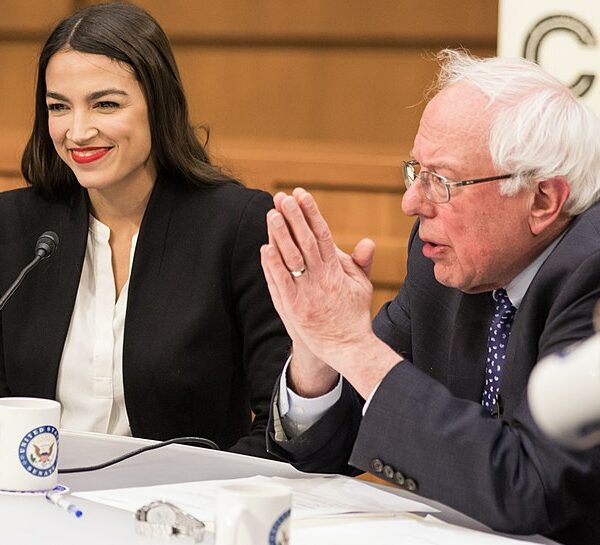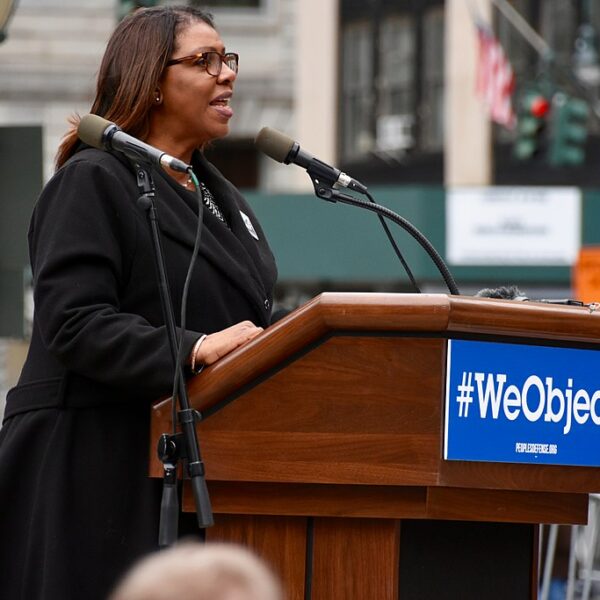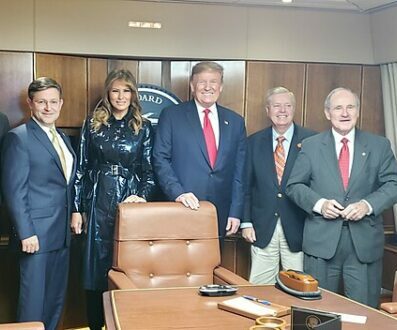
In an unexpected move, Senator John Fetterman has endorsed Senator Marco Rubio for Secretary of State, making him the first Democrat to support Rubio’s potential appointment in President-elect Donald Trump’s administration. Fetterman’s endorsement adds bipartisan momentum to Rubio’s nomination, marking a notable shift in the typically polarized Senate and showing Fetterman’s willingness to support key appointments in Trump’s cabinet.
Fetterman’s endorsement follows reports that Trump has chosen Rubio to lead America’s foreign policy. Although Trump hasn’t officially announced Rubio for the position, sources close to Trump’s decision-making said on Monday that Rubio is his top choice, explained The New York Times.
Confirming his support for Rubio’s appointment, Fetterman wrote, “Of course, the other team’s pick will have political differences from my own. But my colleague @SenMarcoRubio is a strong choice, and I look forward to voting for his confirmation.” This endorsement underscores Fetterman’s pragmatic approach, prioritizing effective governance over partisan allegiance.
Unsurprisingly, the other team’s pick will have political differences than my own.
That being said, my colleague @SenMarcoRubio is a strong choice and I look forward to voting for his confirmation. pic.twitter.com/OUIDx5KK4J
— U.S. Senator John Fetterman (@SenFettermanPA) November 12, 2024
Rubio’s long career in the Senate has cemented his reputation as a foreign policy hawk, consistently advocating for a tough U.S. stance on issues involving China, Iran, Venezuela, and Cuba. Since his election in 2010 as a conservative Tea Party Republican, Rubio has supported assertive policies on the international stage, even when they have put him at odds with other Republicans skeptical of U.S. intervention. Over the years, Rubio’s foreign policy positions—especially on China—have become mainstream across both parties, partly due to his early advocacy for industrial policies designed to help the U.S. compete with China’s state-driven economic model. In 2020, he co-sponsored a bill to prevent imports made with forced labor from China’s Uyghur minority, a measure that President Biden later signed into law.
As a co-chair of the bipartisan Congressional-Executive Commission on China, Rubio has addressed human rights abuses in China and has pushed for more aggressive policies. His hard-line stance on China may continue as he takes the helm of U.S. diplomacy, balancing his history of interventionist policies with Trump’s “America First” approach. While Rubio has often called for the U.S. to take a firmer stance internationally, he has recently adopted some of Trump’s more restrained foreign policy views, particularly on the conflict in Ukraine. In line with Trump’s position, Rubio has advocated for negotiations to end the Russia-Ukraine war and has suggested that Ukraine should remain outside of NATO to avoid further escalation with Russia.
In Latin America, Rubio has been influential as well, particularly in U.S. policy toward Venezuela. In 2019, he was a leading voice behind Trump’s sanctions against Venezuelan leader Nicolás Maduro, predicting that Maduro’s regime would ultimately collapse. Though Maduro remains in power, Rubio has consistently voiced opposition to his government, showing a willingness to use U.S. power to address issues in the Western Hemisphere.
Rubio’s hard-line views also extend to the Middle East. He has expressed steadfast support for Israel’s military actions in Gaza and has placed responsibility for Palestinian civilian casualties squarely on Hamas. When questioned by activists, he has maintained that “Hamas is 100 percent to blame,” indicating he would likely support Trump’s pro-Israel stance in diplomatic affairs.
Fetterman’s endorsement of Rubio signals an unusual bipartisan moment in a divided Senate. Known for his unconventional views within the Democratic Party, Fetterman has frequently taken stances that deviate from party norms, including recent critiques of Democratic messaging. He has voiced concerns that the Democratic Party’s rhetoric is alienating key voting groups, particularly young men, who he says are often unfairly dismissed in political discourse. “We’ve got a challenge,” he told Semafor in a recent interview. “People refer to these young guys as bros, and clearly that’s not a positive term. They’re described as dopes, or gullible, or brutes.”
The Pennsylvania senator has long said he likes Rubio, noted The Washington Examiner. “I’m a fan of my colleague from Florida. I was actually shocked that Trump didn’t pick him over Vance.”
Fetterman’s openness to Rubio’s nomination stands in contrast to many Democrats who are resistant to working with Trump’s administration. His endorsement, alongside one from former Republican Representative Adam Kinzinger—a frequent Trump critic—could ease Rubio’s path to confirmation by providing a veneer of bipartisan support. Given that Republicans hold a Senate majority, Rubio’s confirmation is likely, but Fetterman’s endorsement adds credibility and shows some Democratic support for Rubio’s foreign policy experience.
If confirmed, Rubio would likely navigate competing priorities in U.S. foreign policy, balancing Trump’s desire to reduce foreign intervention with Rubio’s established views on global assertiveness. This balance will be critical as Rubio takes on a role that requires navigating complex relationships with both allies and adversaries.
As Trump’s administration takes shape, Rubio joins other key appointees in the national security arena, including Representative Michael Waltz as national security adviser and Representative Elise Stefanik as U.S. ambassador to the United Nations. If Rubio is confirmed, he will step into a pivotal position to shape U.S. foreign policy direction, particularly in how the country addresses competition with China and relations with NATO allies.
[Read More: MSNBC Goes Up For Likely Sale]











